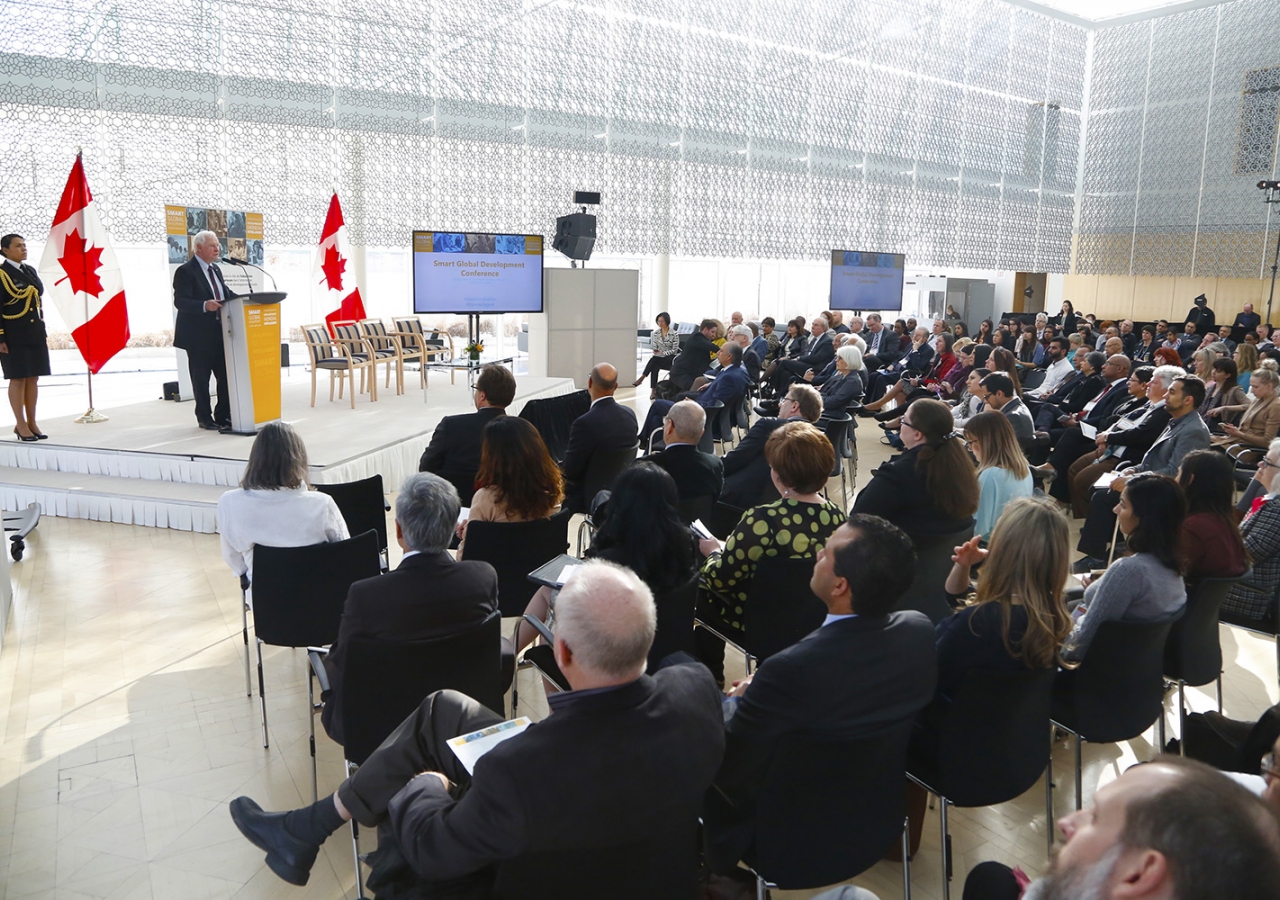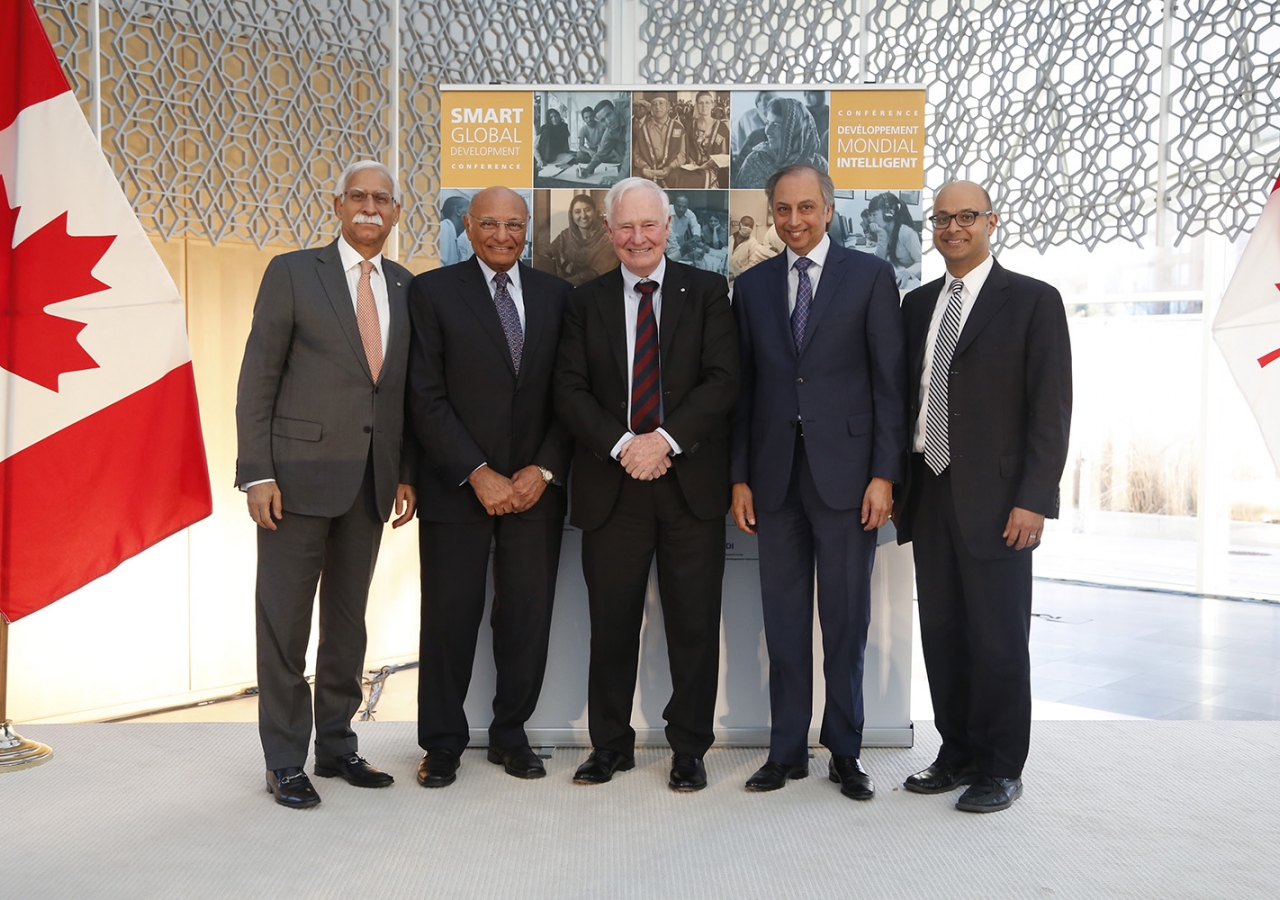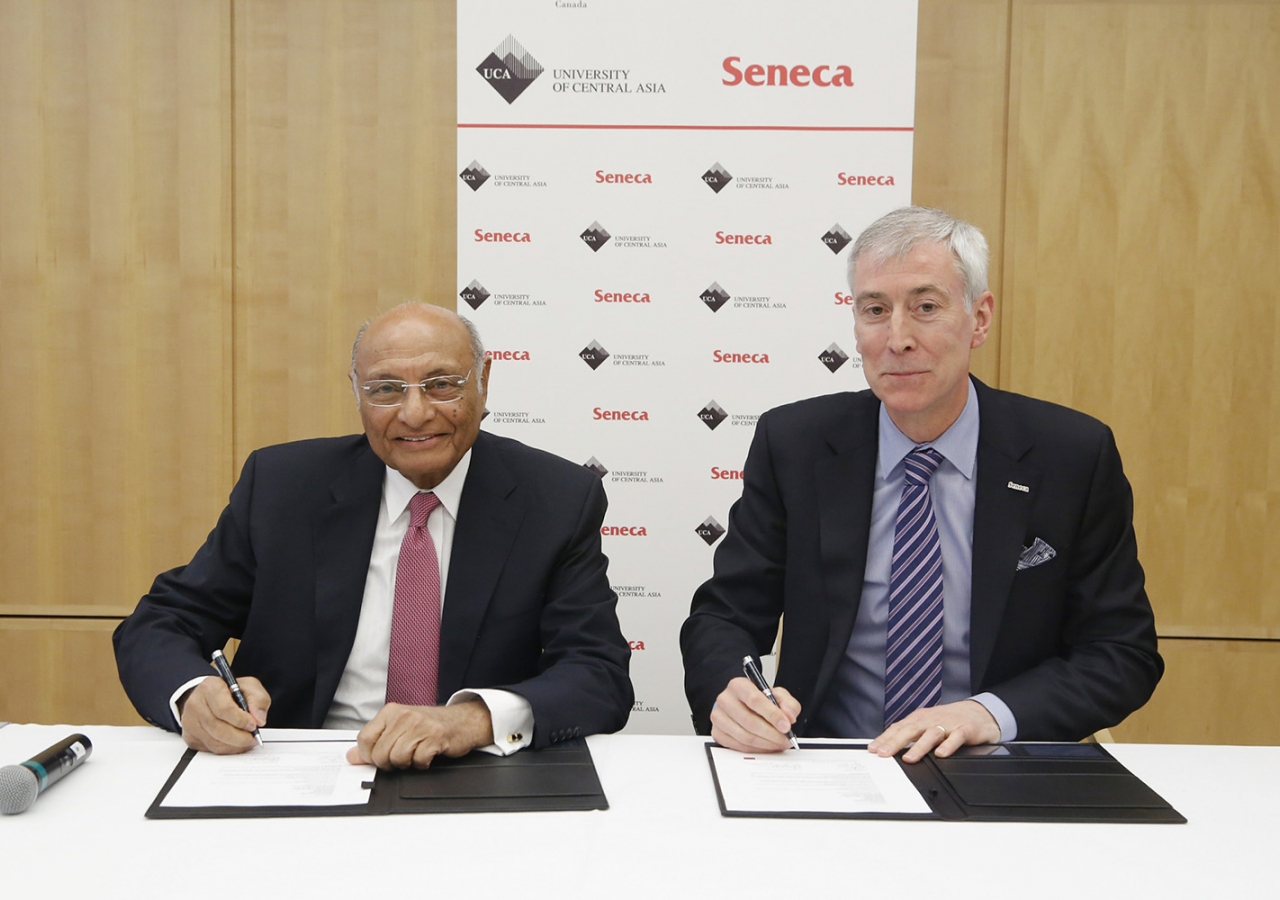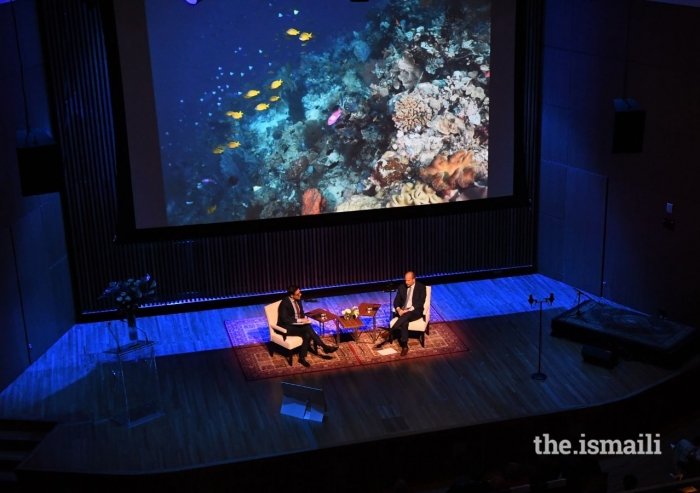Ottawa, 14 April 2016 — Higher education has the potential to unlock new opportunities and underwrite sustainable growth in the developing world. But compared with investments in primary education and basic health care, the international community’s support for tertiary education has been limited.
A two-day gathering at the Delegation of the Ismaili Imamat in Ottawa aimed to raise the profile of higher education on the global development agenda.
“Universities and institutes of higher education are ideally positioned to contribute to sustainable development, because they’re hubs of innovation and creativity,” said His Excellency David Johnston, Governor General of Canada in his opening keynote on Wednesday evening. He suggested that the conference deliberations be guided by themes of “inclusivity, innovation and diplomacy.”
Attendees from more than 20 countries in Africa, Asia, Europe, North America, Latin America and the Caribbean as well as representatives from more than a dozen Canadian universities were gathered for the Smart Global Development conference — a joint presentation of the Aga Khan Foundation Canada, Academics Without Borders and the International Development Research Centre, with financial support from Global Affairs Canada.
Khalil Shariff, CEO of Aga Khan Foundation Canada told the audience that “the need for high quality, permanent institutions has never been so important.” Universities, colleges and research institutes are critical anchors of progress, he explained.
“The most severe sort of marginalisation is marginalisation from the global knowledge society," he said. "Without global knowledge resources, communities, populations, indeed entire countries can be held back for generations.”
The importance of higher education to the work of the Aga Khan Development Network is evident in its two universities — the University of Central Asia, which was represented at the conference by Shamsh Kassim-Lakha, Executive Chairman of the Board Executive Committee, and the Aga Khan University represented by its president, Firoz Rasul.
In his remarks, the Governor General recalled the establishment of the Aga Khan University in Karachi, Pakistan in the early 1980s, citing it as an example of how Canadian institutions of higher learning can make a difference in the quality of tertiary education in the developing world.
“Today, the university is well known as a leader in the field of medicine,” said Johnston — “the result of a wonderful partnership that existed between Aga Khan University and a number of North American universities.”
In particular, he highlighted the assistance given by McMaster and McGill in laying the foundations for AKU’s School of Nursing and Medical College. “The goal was very ambitious,” said Johnston, “to bring the best of Western medicine to a country with very distinct customs and traditions.”
Partnership for Central Asia
Canada and the Aga Khan Development Network have been partners in development for several decades, successfully expanding opportunities and improving quality of life in some of the most fragile regions of the developing world. Partnerships with higher education institutions have been central to these endeavours.
Last year, the University of Central Asia and Toronto’s Seneca College signed a memorandum of understanding in which Seneca would develop UCA’s preparatory programme in English, mathematics and science. The two institutions reaffirmed this commitment today, in a signing ceremony that took place at the conference.
The preparatory courses will ensure that students entering the university’s undergraduate programmes at campuses in Kazakhstan, the Kyrgyz Republic, and Tajikistan will be equipped with the skills they need to succeed at the university level. Students at the Naryn campus in Kyrgyzstan will be the first to benefit.
“With Seneca’s support, our inaugural class of students will receive a rigorous academic programme that will prepare them for a truly international standard of education,” said UCA Executive Chairman Shamsh Kassim-Lakha.
Seneca President David Agnew noted that “Seneca and UCA share a common belief that world class education is one that offers a global perspective while empowering students to create social change both locally and internationally.” He also announced the College’s support of 12 scholarships for talented students from Central Asia.
The University of Central Asia is in the process of building its three residential campuses. The Naryn campus will enrol its first undergraduate students in September 2016, with Khorog, Tajikistan to follow in 2017 and the Tekeli campus in Kazakhstan due to open its doors in 2019. In addition to Seneca, the UCA has benefited from the assistance of the University of British Columbia, Carleton University, the University of Alberta, as well as support from Global Affairs Canada and the International Development Research Centre.
Enduring commitment to education
Speaking at the conference this morning, Dr Mahmoud Eboo, AKDN Resident Representative for Canada suggested that some might wonder what motivates the interest of AKDN and the Ismaili Imamat in education.
“The notion of the search for knowledge and its application for the benefit of people and the improvement of quality of life has been an ethical principle that has been part of the work of the Imamat for centuries,” he said. In 970 CE, when Mawlana Hazar Imam’s ancestor founded Al-Azhar in Cairo — which is today the world’s oldest university — “Muslim societies were at the vanguard of knowledge production.”
This focus on education continues today with Mawlana Hazar Imam’s establishment of two international universities, explained Dr Eboo. Together with a network of educational institutions that span the early childhood, primary and secondary levels, AKDN’s educational endeavours are spread across Central Asia, South Asia, Sub-Saharan Africa and Europe.
“Knowledge production, knowledge creation for the benefit of people and their quality of life — that is the driving ethic of the Aga Khan network,” he said.
The Honourable Marie-Claude Bibeau, Canada’s Minister of International Development and La Francophonie situated the role of higher education within the United Nations Sustainable Development Goals for 2030. She discussed the priorities of the Government of Canada and its educational initiatives in international development.
“We very much value the partnerships that we have with our Canadian partners as well as the Canadian government,” said Dr Eboo. “For us, education is the single most powerful counterforce to poverty, to radicalisation, to lack of opportunity, to lack of hope.”
“Fear is infectious, but hope is too.”











